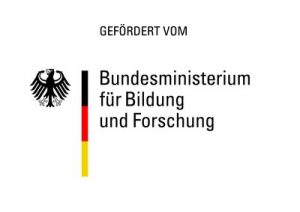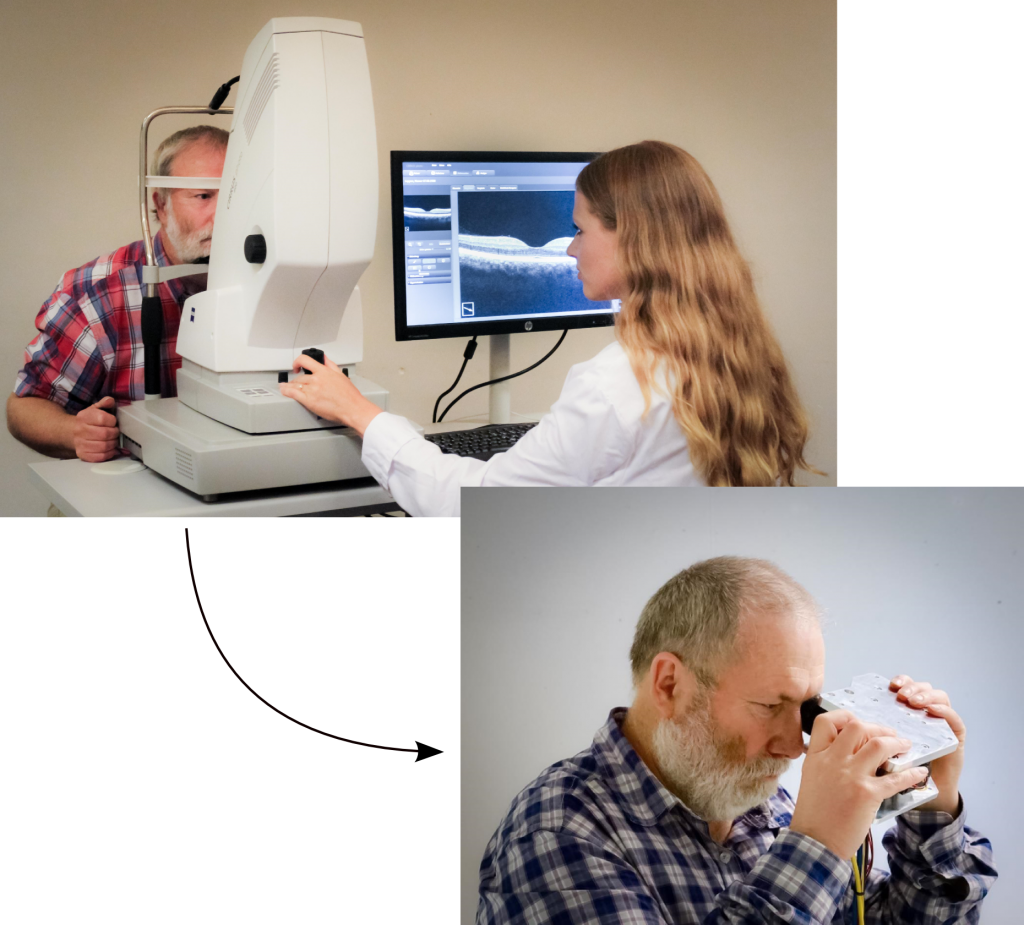Public projects
RETOME
Monitoring of retinopathy @HOME
The macula of the eye is the retinal area of the sharpest vision. The diseases of this part of the retina are one of the most common causes of blindness in industrialized countries. These diseases include age-related macular degeneration (AMD), diabetic maculopathy (DME) and occlusive macular edema (RVO). Currently, in Germany alone, about 1.8 million people suffer from the neo-vascular (wet) form of age-related macular degeneration (nvAMD), which, if left untreated, quickly leads to blindness.
The treatment of wet AMD is currently carried out by one to bi-monthly injections of preparations (so-called anti-VEGF preparations) which inhibit the growth of pathological vessels, that play a decisive role in the development of this disease. Individual on-demand injections based on monthly ophthalmologist checks achieve a good therapeutic effect.
These monthly checks, however, are an insurmountable hurdle, especially for old, visually impaired people, who are often affected by several illnesses at the same time, especially in the case of stable findings that do not require medical treatment. In addition, they cause high health care costs. A general extension of the control intervals, however, leads to significantly worse results, because they delay the injection possibly required. However, with each delayed re-injection part of the vision is irretrievably lost.
The indication for re-injection must be provided for good results using optical coherence tomography (OCT). The OCT allows both the qualitative detection and a quantitative measurement of pathological retinal changes.
If the OCT measurement could be performed not by an ophthalmologist, but by nurses or even by the patient himself as home care analysis, the frequency of screening could be increased without increasing the burden of outpatient medical attention. This would substantially improve therapy control while significantly reducing healthcare costs. Therefore, at the beginning of August 2015, the collaborative project “RETOME” funded by the German Federal Ministry of Education and Research (BMBF) was launched to monitor retinatherapy.
The aim of the project is to increase the quality of life of AMD patients by optimizing the frequency of injections. This way, the patient can be spared unnecessary injections with the corresponding risks. On the other hand, the increased control frequency optimally prevents possible premature blindness. The project will also investigate the extent to which the diagnostics in diabetic maculopathy (DME) and occlusive macular edema (RVO) can be improved with such control examinations.
As part of this research project, the Medical Laser Center Lübeck GmbH (MLL) under the direction of PD Dr. med. Gereon Hüttmann based on extensive patient data from the Department of Ophthalmology of the University Clinic Kiel develop various techniques for a home-care OCT device. Clinical demonstrators, including the data evaluation algorithms, will be implemented at Carl Zeiss AG and MLL and clinically evaluated at the University Clinic Kiel. A key technical element here is the camera technology integrated in the overall system. The latter is being researched by Basler AG.
The RETOME network is funded by the Federal Ministry of Education and Research in the context of the initiative “On-site analysis with photonic methods for use in the life sciences” with about 1.52 million euros. After three years, the project work should be completed by the end of July 2018.


